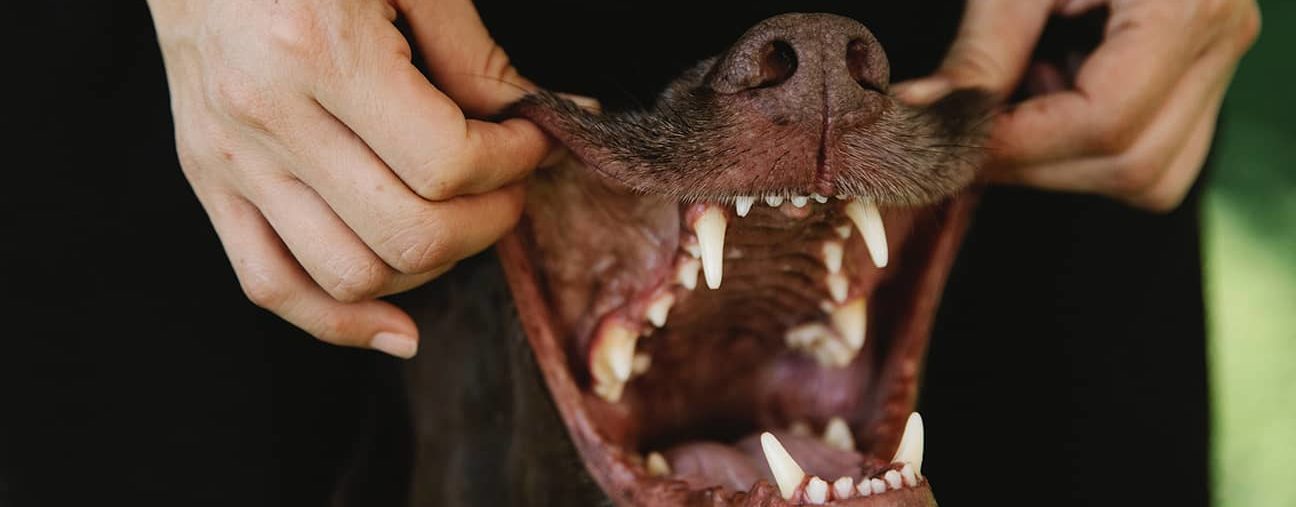
Your Dog’s Dental Health
February 5th, 2022
Did you know that February is National Pet Dental Health Month? It is! Pet dentists created it to remind us that our dogs’ dental health is as important as our dental health!
How Can You Improve Your Dog’s Dental Health?
There are several ways you can improve your dog’s dental health. Here are some tips.
- Brush your dog’s teeth regularly to prevent plaque build-up.
- Feed your dog a special dental diet – this doesn’t necessarily refer to a special type of kibble.
- Buy your dog dental toys.
- Treat your dog to mouthwash.
- Visit your vet annually to check his teeth and more often if you suspect dental disease.
Why is Your Dog’s Dental Health Important?
 Taking care of your dog’s teeth is part of their overall health and care. It’s essential for several reasons because it prevents:
Taking care of your dog’s teeth is part of their overall health and care. It’s essential for several reasons because it prevents:
- tooth loss
- bad breath
- mouth pain
- organ damage.
You may not think that poor dental health can cause organ damage, but it can. Suppose your dog’s immune system fails to kill the bacteria in the plaque. In that case, it can enter the bloodstream and spread to various organs such as the heart, liver, and kidneys.
Be Aware of the Health of Your Dog’s Teeth
 Regularly check your dog’s mouth! If you notice any changes, contact your veterinarian immediately. Some of the common oral care problems are:
Regularly check your dog’s mouth! If you notice any changes, contact your veterinarian immediately. Some of the common oral care problems are:
- Bad breath (Halitosis): This is generally the first sign of a problem. Halitosis occurs when food gets stuck in your dog’s mouth, and bacteria begin to grow. You can prevent halitosis through regular brushing. Persistent bad breath may be a sign of something more serious.
- Cysts and tumors: If you notice any lumps or bumps in your dog’s mouth, see your vet right away. Cysts may need to be drained. Many lumps and bumps are benign. However, they should be biopsied and removed if it turns out it is malignant.
- Gingivitis: This is the term for inflamed gums caused by heavy plaque on your dog’s teeth. With regular cleaning, this is reversible. But, if you notice any bleeding or changes in gum color, contact your vet.
- Periodontal disease: This is an infection that resides between the teeth and gums. It can cause swelling, loose teeth, pain, difficulty eating, and possibly a nasal discharge. Other signs of periodontal disease include yellow or brown teeth, red or swollen gums, and difficulty chewing. If you notice any of these indicators, contact your vet so he can examine your dog.
- Proliferating gum disease: This is a condition that is often associated with bull terriers and boxers, where the gum line grows over the teeth. The excess growth offers a more significant opportunity for infection. If this happens, your vet will treat it with antibiotics.
Taking regular care of your dog’s teeth is part of their overall care. Doing so will most likely alleviate most of the above issues. Your dog may not enjoy it, but it’s an integral part of their total health in the long run.
